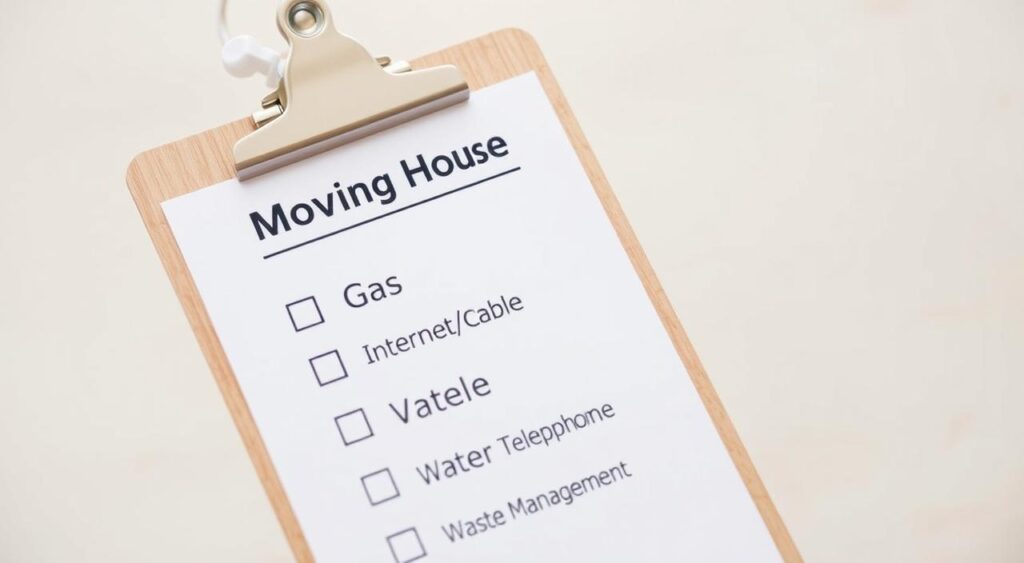Looking for moving house tips for London? Whether you’re relocating across boroughs or moving into the city for the first time, preparation is key to avoiding stress and last-minute chaos. From navigating tight street access to updating utilities, smart planning ensures your London move goes smoothly.

Key Takeaways
- Build a timeline and allow for flexibility in case of delays
- Apply early for London parking permits for moving day
- Declutter and donate to cut costs and save time
- Update addresses with key providers before your move
- Choose experienced movers familiar with London logistics
1. Plan Your Move with a Smart Timeline
London’s busy property chains often lead to unpredictable moving dates. Flexibility is essential, especially when completion dates change. Start by identifying ideal moving periods, such as school holidays, and always have a contingency date in place.
Book Services in Advance
London’s top removal firms can be fully booked for weeks, especially in summer. Contact multiple companies early to secure:
- Better rates for midweek moves
- Price stability with early booking
- Availability for flexible time slots
2. Notify Utilities and Key Organisations
A smooth move depends on efficient coordination with your current service providers and institutions.
Essential Utility Transfers
Notify your water, gas, electricity, and internet providers at least 48 hours ahead. Record final meter readings and request written confirmation of closing and opening balances.
Change of Address Checklist
Here’s a quick reference table for notifying key organisations:
| Category | Key Contacts | Deadline |
|---|---|---|
| Government | DVLA, HMRC, Electoral Roll | 1 week post-move |
| Financial | Banks, Credit Cards, Pension Providers | Moving date |
| Health | GP, Dentist, NHS | 2 weeks post-move |
Set up Royal Mail redirection for at least 6 months to catch delayed post.
3. Declutter and Prepare for Your New Home

Sorting your possessions reduces both the cost and time of packing. Use a 4-bin method:
- Keep: Daily use or emotional items
- Donate: Gently used clothes, toys, or furniture
- Sell: Items with resale value
- Dispose: Damaged or expired goods
Donation and Resale Channels
- British Heart Foundation – free furniture collections
- Olio – food and item sharing with neighbours
- Vinted, Gumtree, and Facebook Marketplace – ideal for selling clothes, furniture, or household goods
4. Pack Efficiently and Label Everything
Start packing at least two weeks before the move. Begin with infrequently used spaces like attics or spare rooms. Use this framework:
| Room | Packing Order | Key Items |
|---|---|---|
| Spare Bedroom | Week 1–2 | Guest linens, ornaments |
| Garden Shed | Week 1–2 | Tools, seasonal equipment |
| Main Bedroom | 3 Days Pre-Move | Clothes, essentials |
Labelling for Speed and Clarity
Adopt a system for clear labelling:
- Use colour-coded stickers for each room
- Mark boxes with symbols for fragile items
- Maintain an inventory checklist with box numbers
Order supplies like double-walled boxes, bubble wrap, and tape in advance. Suppliers like Staples UK or Amazon offer bundles at discounted rates.
5. Prepare a Moving Day Survival Kit

Don’t let the chaos of moving make you forget basic necessities. Pack a bag with:
- Box cutter, bin bags, paper towels
- Snacks, tea bags, and a travel kettle
- Phone charger, essential documents, and spare clothes
- Bedding and toiletries
- First aid kit with plasters and paracetamol
Keep this kit easily accessible—ideally in your own vehicle or a designated “open first” box.
6. Bring Tools and Final Prep Items
Even in fully managed properties, last-minute fixes can arise. Keep a basic toolkit handy:
- Screwdriver with interchangeable heads
- Torch and batteries
- Duct tape, light bulbs, WD-40
- A power bank to charge phones during the move
Stores like B&Q and Wilko have excellent compact kits.
7. Budget and Protect Your Belongings
Compare Van Hire and Removal Firms
For smaller moves, a rental van may suffice. Consider:
- Zipcar – flexible pickup points
- Travelsupermarket – budget van hire
- Enterprise Car Club – urban-focused van rental
For full-service removals, choose a firm registered with the British Association of Removers and get at least three quotes.
Get the Right Insurance
Don’t skip insurance—coverage often starts the moment contracts exchange.
- Buildings insurance – required from exchange date
- Contents insurance – covers belongings during transit
- Specialist cover – needed for DIY van moves
If you’re a Shared Ownership resident, check if your building insurance is already covered via your service charge.
8. Wrap-Up Before You Leave
Before handing over keys, make sure to:
- Take and photograph final utility readings
- Collect all spare keys from drawers or hooks
- Do a sweep of all cupboards, lofts, and sheds
- Wipe down surfaces and vacuum floors
Use your local council’s bulky waste collection if you can’t donate leftover furniture.
Conclusion: Your Fresh Start in London
Relocating in London doesn’t need to be chaotic. With a proactive plan, trusted service providers, and a realistic timeline, your move can be smooth and even enjoyable. Treat the first night in your new home as a celebration—pop some bubbly, unpack essentials, and relax. You’ve done the hard part. Now it’s time to build new memories in a space that feels like home.
If you’re facing a large volume of unwanted items, consider booking a professional house clearance in London to help remove furniture, appliances, or general waste quickly and responsibly.





